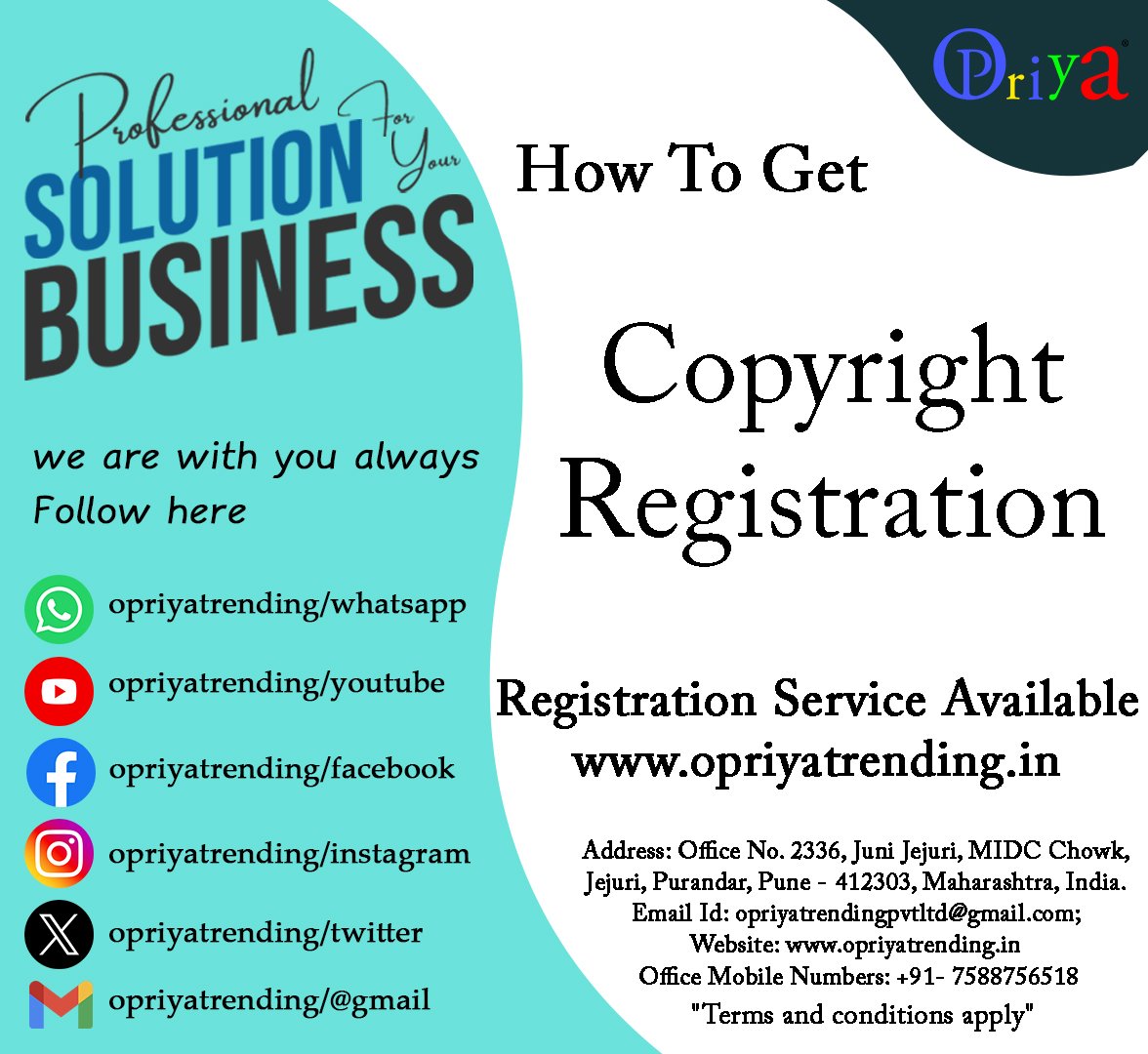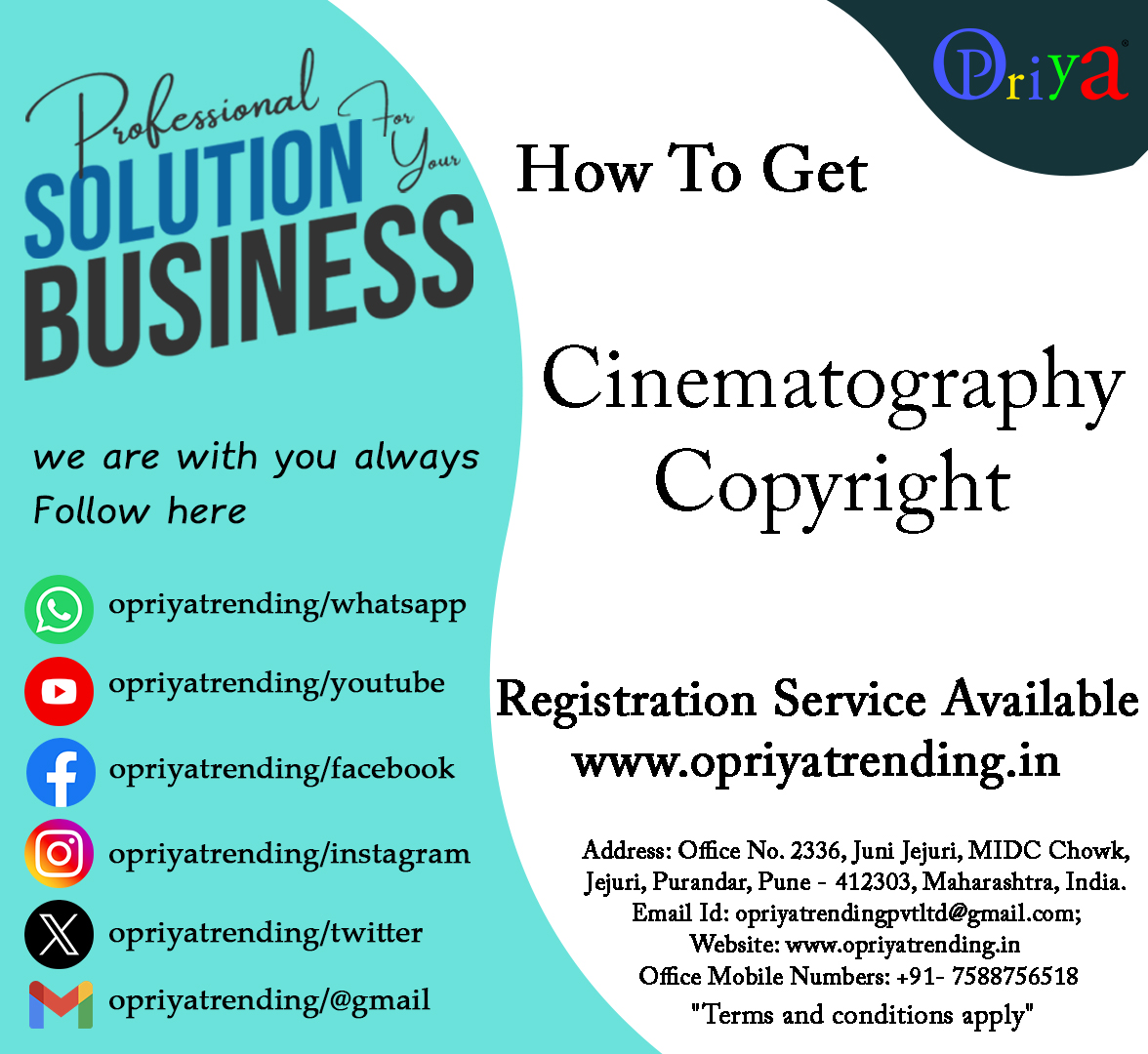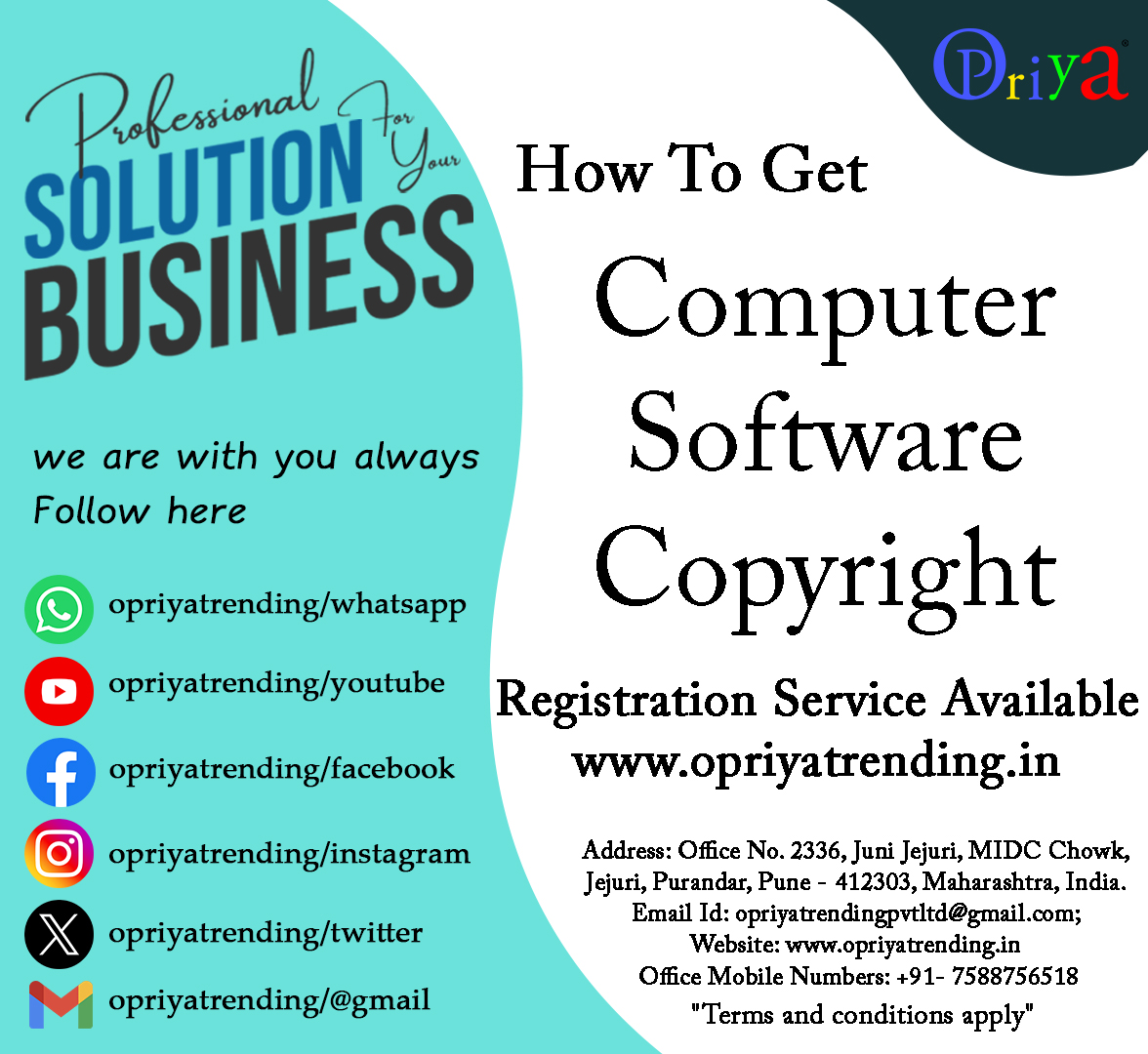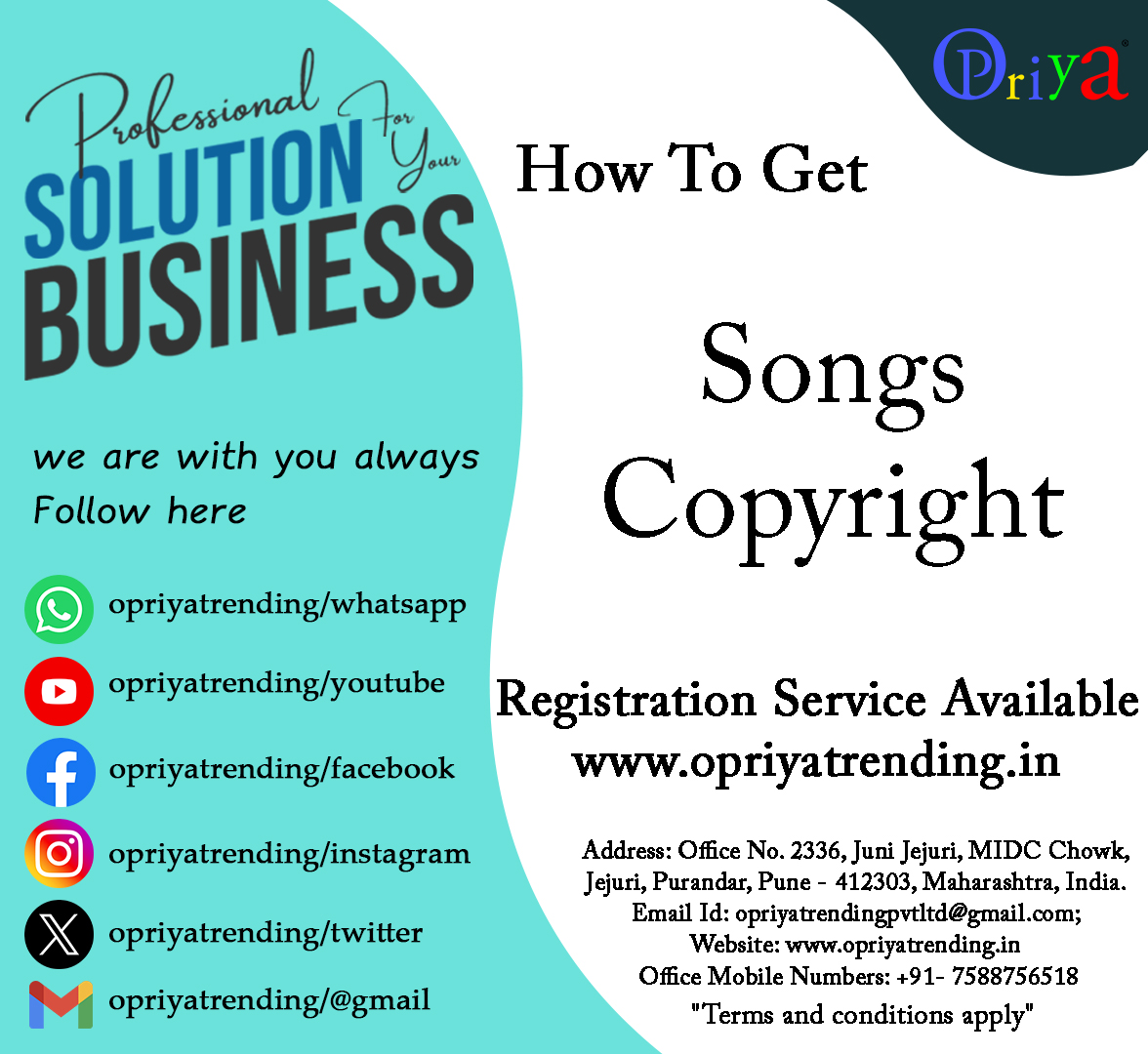Literary and Dramatic Copyright
Table of Contents
1. ✅ Introduction to Literary and Dramatic Copyright
Literary and Dramatic Copyright is a legal protection provided to authors, writers, playwrights, and dramatists for their original written or dramatic works. This intellectual property right safeguards your creative expression from unauthorized reproduction, performance, or adaptation. Whether you’re an emerging author or a seasoned playwright, Literary and Dramatic Copyright ensures that your intellectual creation remains your legal asset.
In India, the Copyright Act, 1957 governs all matters related to copyright, including Literary and Dramatic Copyright. It grants the copyright holder exclusive rights to publish, distribute, translate, or perform the work publicly. This legal shield helps prevent plagiarism, misrepresentation, or illegal adaptations of your content.
By securing Literary and Dramatic Copyright, you gain moral and economic rights over your work. You can monetize your creation, sue infringers, and ensure long-term value of your literary or dramatic property.
At O’Priya Trading Pvt Ltd, we specialize in Literary and Dramatic Copyright registration. With years of experience, our team ensures accurate filing, expert documentation, and a seamless registration journey. Apply with full confidence in 2025 and protect your literary or dramatic masterpiece today.
2. ✅ Types of Licenses Offered
When applying for Literary and Dramatic Copyright, there are several license types available based on your needs:
1. Literary Work Copyright License
Includes novels, poems, essays, textbooks, articles, instruction manuals, scripts, etc.
2. Dramatic Work Copyright License
Applies to plays, stage performances, screenplays, dialogues, choreography, and scripts meant for performance.
3. Adaptation Rights License
Grants permission to transform a literary work into a dramatic format or vice versa.
4. Translation Rights License
Allows the copyright holder to translate their work into regional or foreign languages while maintaining ownership.
5. Derivative Work License
Covers spin-offs, sequels, or any new creation derived from the original copyrighted work.
With O’Priya Trading Pvt Ltd, all Literary and Dramatic Copyright licenses are processed in compliance with Indian Copyright Office norms. Our experts guide you to the right license type based on your creative category.
3. ✅ Who Needs These Services?
Literary and Dramatic Copyright is essential for anyone involved in original literary or dramatic creation. Below is a list of beneficiaries:
- Authors writing fiction, non-fiction, or academic material
- Scriptwriters and Playwrights creating screenplays or stage plays
- Publishing Houses looking to protect their content catalog
- Bloggers and Journalists producing long-form content
- Educational Institutions developing course materials
- Theatre Groups and Drama Studios staging original productions
- Filmmakers adapting literary works into movies or web series
If you’re producing original content, Literary and Dramatic Copyright provides security and control over your intellectual property. With infringement risks growing in the digital age, copyright protection is no longer optional—it’s essential.
4. ✅ Why Choose O’Priya Trading Pvt Ltd as a License Registration Service Provider?
O’Priya Trading Pvt Ltd is a trusted name in intellectual property licensing and registration. Here’s why you should choose us for your Literary and Dramatic Copyright:
- Expertise in Copyright Law: Our legal professionals are well-versed with Indian copyright procedures.
- Personalized Consultation: We guide you to the correct license and help you avoid missteps.
- Hassle-Free Filing: End-to-end document preparation and submission handled professionally.
- Fast Processing: We help reduce turnaround time with error-free applications.
- Affordable Pricing: Competitive rates with no hidden charges.
- Transparent Process: Complete visibility into every step of your application.
- Dedicated Support: Friendly support team via email, WhatsApp, and phone.
When you choose O’Priya, you choose confidence, clarity, and compliance.
5. ✅ Literary and Dramatic Copyright Registration Process
Registering your Literary and Dramatic Copyright involves several steps. Here’s how the process works:
Step 1: Manuscript Preparation
Ensure the content is finalized, original, and ready for submission in soft and hard copy format.
Step 2: Classify the Work Type
Identify whether your work is literary, dramatic, or both. This classification impacts the license type.
Step 3: Copyright Application (Form XIV)
File Form XIV along with a statement of particulars (Form XV) and a declaration of originality.
Step 4: Submission of Documents
Submit identity proof, address proof, manuscript, and no-objection certificates (if applicable).
Step 5: Government Fee Payment
Pay the required copyright registration fee to the Copyright Office.
Step 6: Diary Number Allotment
Once the application is submitted, a Diary Number is assigned to track progress.
Step 7: Objection Period (30 Days)
During this time, third parties can raise objections if they claim similar rights.
Step 8: Scrutiny by Registrar
Post-objection period, the Registrar reviews documents for legal and creative authenticity.
Step 9: Registration Certificate Issued
If no objection is found, the registration certificate is granted.
O’Priya Trading Pvt Ltd ensures every step is handled with professionalism so your Literary and Dramatic Copyright journey is smooth and stress-free.
6. ✅ Required Documents
Here is a checklist of the documents needed for Literary and Dramatic Copyright registration:
- Manuscript (Hard Copy + Soft Copy)
Clearly printed and formatted document of your original work. - Identity Proof of Author
Aadhaar Card, Passport, Voter ID, etc. - Address Proof
Utility bills, bank statement, or government-issued ID. - NOC from Publisher (if applicable)
If the work is already published or commissioned. - Power of Attorney
If an agent or service provider is filing on your behalf. - Declaration of Originality
A signed affidavit stating the originality of the submitted work.
We help you compile and validate every document required for your Literary and Dramatic Copyright application.
7. ✅ Cost Involved (Professional Fees)
The cost of registering your Literary and Dramatic Copyright includes both government fees and professional service charges.
- Government Fee: ₹500 per work
- Professional Fee (O’Priya Trading Pvt Ltd): ₹2,499 – ₹3,999 per work
What’s Included in Our Fee?
- Application drafting
- Form filing
- Document preparation
- Continuous updates
- Final certificate dispatch
For multiple works or ongoing author portfolios, discounted packages are available.
8. ✅ Payment Refund Policy
All payments made for Literary and Dramatic Copyright registration are non-refundable once the application is submitted. However, if a technical error is made on our part, O’Priya Trading Pvt Ltd offers a 30-day satisfaction guarantee. Corrections and re-filings will be handled at no extra charge.
Please ensure your manuscript and documents are final before submission to avoid delays or additional costs.
9. ✅ Terms and Policy
By applying for Literary and Dramatic Copyright through O’Priya Trading Pvt Ltd, you agree to the following:
- All submitted content must be original and non-infringing.
- We are not responsible for objections raised by third parties.
- Refunds are not provided post submission.
- Government fees may change as per regulatory updates.
We value transparency, and all terms are shared before the application begins.
10. ✅ Time Taken
The total time required for Literary and Dramatic Copyright registration varies:
- Diary Number Allotment – Within 3 working days
- Objection Window – 30 days
- Scrutiny & Approval – 2 to 3 months
Total time: 2.5 to 3.5 months
Fast-track services may be available on request through O’Priya Trading Pvt Ltd.
11. ✅ Common Mistakes to Avoid
Here are some dangerous mistakes to avoid while filing for Literary and Dramatic Copyright:
- Submitting incomplete manuscripts
- Forgetting to sign declarations
- Choosing the wrong work classification
- Not including NOCs from co-authors or publishers
- Filing for published work without proper rights
These mistakes can delay or cancel your application. Always double-check before submission. O’Priya helps you avoid these pitfalls and file with full confidence.
12. ✅ Call-to-Action (CTA) – Contact Us 📩
Apply for your Literary and Dramatic Copyright in India today with O’Priya Trading Pvt Ltd. Let our experts handle everything from paperwork to approval.
📧 Email: opriyatrendingpvtltd@gmail.com
📱 WhatsApp: Click to Chat
👍 Visit us on Facebook
🌐 Website: opriyatrending.in
Get started now and protect your creativity!
13. ✅ FAQs
Q1. What is Literary and Dramatic Copyright?
A legal protection for authors and playwrights to prevent unauthorized use or duplication of their original work.
Q2. Is registration mandatory?
While not mandatory, registration provides solid legal proof of ownership.
Q3. Can I file multiple works at once?
Yes, but each work needs a separate application and fee.
Q4. What if someone copies my work after registration?
You can initiate legal action using the copyright certificate as evidence.
Q5. Can I copyright translated work?
Yes, if you own the translation rights or have permission from the original author.
Q6. Is unpublished work eligible?
Yes, unpublished manuscripts can also be copyrighted.
Q7. Will I get lifetime protection?
Yes, the copyright lasts for the author’s lifetime plus 60 years.
Q8. Can I sell my copyright?
Yes, through assignment agreements or licensing.
O’Priya Trading Private Limited: All India License Registration Service Provider
In today’s complex regulatory landscape, obtaining licenses and regulatory approvals in India has become more essential than ever for businesses, institutions, and individuals. Whether it’s an arms license, FSSAI registration, company incorporation, or compliance with the latest government norms, having the right license determines your legitimacy, credibility, and operational capacity.
One company leading this transformation by providing seamless, reliable, and legally compliant license registration services across India is O’Priya Trading Private Limited. With a strong commitment to transparency, process efficiency, and client satisfaction, O’Priya Trading Pvt. Ltd. has emerged as a trusted name in the Indian licensing domain.
🔷 Company Overview
Legal Name: O’Priya Trading Private Limited
Nature of Business: License Registration, Compliance Advisory, Government Liaison Services
Operational Scale: Pan-India
Head Office: Registered in India, with service availability across all states and union territories
📞 Call-to-Action (CTA) – Apply Now with Confidence!
Ready to secure your Licence Apply with Full Confidence in All Indiaa?
📧 Email: opriyatrendingpvtltd@gmail.com
📱 WhatsApp: Click to Chat
👍 Visit us on Facebook
🌐 Website: opriyatrending.in
Apply with Full Confidence in 2025.
🏛️ What Does O’Priya Trading Pvt Ltd Do?
O’Priya Trading Private Limited specializes in license registration services across India, offering a full range of end-to-end solutions to institutions, businesses, and individuals seeking regulatory permissions and licenses. From document preparation to submission, legal verification, and post-approval compliance, they serve as a single-window license consultancy provider.
🗺️ Pan-India Service Coverage
What makes O’Priya Trading unique is its all-India licensing facilitation network. Unlike regional agencies that operate within narrow jurisdictions, O’Priya has built an operational capacity to deliver services in every Indian state and union territory.
🌍 States Served Include:
- Delhi, Maharashtra, Uttar Pradesh, Gujarat, Rajasthan, Madhya Pradesh, Karnataka, Tamil Nadu, Kerala, Telangana, Punjab, Haryana, Assam, West Bengal, Bihar, Jharkhand, Odisha, Chhattisgarh, and more.
🏢 Cities with Active Clients:
- Mumbai, Pune, Delhi, Hyderabad, Bangalore, Kolkata, Ahmedabad, Chennai, Jaipur, Lucknow, Bhopal, Indore, Surat, Patna, and others.
Through a digital-first approach, coupled with experienced local legal liaisons, O’Priya ensures consistency in documentation, faster government approvals, and responsive client support.
💡 Why Clients Trust O’Priya Trading Pvt Ltd
1. ✅ Transparency & Ethics
🔒 100% Transparent | No Hidden Fees | Pan-India Services We believe in:
- Clear timelines
- Upfront pricing
- Honesty about payment policies (non-refundable, refundable, no surprises)
- Total confidentiality
2. 🧾 Documentation Expertise
Most license applications are delayed due to incomplete, incorrect, or improperly formatted documents. O’Priya’s legal consultants help you prepare foolproof documentation as per the latest formats demanded by regulatory bodies.
3. 🧑⚖️ Government Liaison
Whether it’s a district magistrate’s office, arms licensing authority, food safety department, or ROC office, O’Priya has built solid working relationships with relevant departments across states.
4. 🚀 Quick Turnaround
With strong process knowledge and digital tools, O’Priya delivers faster application submissions, consistent follow-ups, and streamlined approvals—ensuring minimal disruption to your business.
5. 💬 Client-Centric Support
They offer multi-channel communication: WhatsApp, email, video calls, and in some cases, in-person assistance. Clients are never left guessing about the status of their application.
📂 Service Flow: How It Works
Step 1: Free Consultation
Client reaches out via WhatsApp or email. A dedicated case manager responds with guidance and documentation checklist.
Step 2: Document Compilation
The team helps the client gather and format all required documents—identities, justifications, organizational registrations, etc.
Step 3: Application Filing
Forms are filled and submitted either physically or digitally, depending on the department’s workflow.
Step 4: Verification Support
Whether it’s a police inquiry or local office inspection, the team ensures you’re prepared and compliant.
Step 5: Approval & Delivery
Once approved, the license or certificate is collected and shared with the client via secure channels. Renewals and annual compliances are also managed, if opted for.
🔍 Industries Served
| Industry | Licenses Provided |
| Security | PSARA, Arms License |
| Food & Beverages | FSSAI, Shop Act, GST |
| Manufacturing | Factory License, Pollution NOC |
| Healthcare | Drug License, Biomedical Waste License |
| Retail & E-commerce | GST, MSME, Trademark |
| Education/Training | Arms License (Training), ISO, Accreditation support |
This industry-specific approach helps clients get exactly what they need—no more, no less.
📊 Success Metrics (As of 2025)
- ✅ 4,000+ Licenses Approved
- ✅ 95% Success Rate on First Submissions
- ✅ 100+ Cities Served
- ✅ 40+ License Categories Covered
- ✅ 500+ Institutional Arms Licenses Facilitated
🔄 Annual Compliance Services
Beyond just registration, O’Priya also offers post-licensing support, such as:
- Annual license renewals
- Change of address or ownership updates
- Firearms inspection audit preparation
- Document maintenance and digital filing
- Regulatory upgrades (as per rule changes)
This holistic approach ensures clients remain compliant even after license issuance.
📌 Why Choose O’Priya Over Others?
| Feature | O’Priya Trading Pvt Ltd | Typical Local Agent |
| Service Reach | Pan-India | Limited to district/state |
| Process Transparency | High (With Updates) | Often vague or hidden |
| Legal Expertise | Qualified Advisors | Informal guidance |
| Communication | Email, WhatsApp, Call | Mostly phone |
| Refund/Policy Clarity | Documented Terms | Unclear or non-existent |
| Renewal Reminders | Included | Rarely provided |
For businesses and institutions who cannot afford non-compliance or delays, O’Priya offers institutional-grade service quality at competitive prices.
🧭 Vision and Future Outlook
O’Priya Trading Pvt Ltd envisions becoming India’s most trusted regulatory compliance partner. With ongoing investments in:
- AI-based document automation
- Online dashboards for tracking license status
- Partnerships with regional lawyers and consultants
- Digital KYC and identity verification tools
…they aim to make India’s license ecosystem simpler, faster, and corruption-free.
Call-to-Action (CTA) – Apply Now with Confidence!
Ready to secure your Licence Apply with Full Confidence in All Indiaa?
📧 Email: opriyatrendingpvtltd@gmail.com
📱 WhatsApp: Click to Chat
👍 Visit us on Facebook
🌐 Website: opriyatrending.in
Apply with Full Confidence in 2025.
🛡️ Legal. Reliable. Fast. That’s the O’Priya Promise.
📋 List of Services (with Reconstructed Links)
Below is the categorized list of services as per the website’s usage index. Where possible, we’ve added direct or pattern-based links.
1. Arms License Services
- Arms for Individual License Registration
- Arms for Institution License Registration
- Arms for Sports License Registration
- Arms for Dealers License Registration
- Weapons Manufacturing License Registration
2. AYUSH License
- AYUSH Loan & Others License
- AYUSH Manufacturing License
- AYUSH Distribution License
- AYUSH Clinic License
- AYUSH Retail License
3. BIS/ISI/ISO Certifications
4. Compulsory Registrations
- MSME/Udyam Registration
- Startup India Registration
- FSSAI Registration (Central/State)
- Legal Entity Identifier Code
- Trade License
- Fire License
- Digital Signature
- ICEGATE Registration
- FCRA Registration
- 80G and 12A Registration
5. DOT/Telecom Licenses
- ISP License
- NLD/ILD License
- UL VNO License
- PM-WANI Registration
- SACFA Clearance
- IP-1 Registration
- TEC Certificate
- AGR Return Filing
6. Drug License
7. Electrical License
8. GST & Taxation
9. IPR Services (Trademark, Copyright, Patent)
- Trademark Registration
- Trademark Objection Reply
- Patent Filing (Provisional/Complete)
- Copyright Registration
- Design Registration
10. Liquor License
11. MCA Services
- Private Limited Company Registration
- LLP Registration
- OPC Registration
- Annual MCA Compliance
- Company Closure
12. PESO License
13. PSARA License
14. Pollution Control
15. Regulatory Bodies
- NBFC Registration (RBI)
- FFMC & P2P Lending
- Legal Metrology Packager License
- IRDAI Corporate Agent License
📞 Contact O’Priya Trading Pvt Ltd Today
📧 Email: opriyatrendingpvtltd@gmail.com
📱 WhatsApp: Click to Chat
👍 Visit us on Facebook
🌐 Website: opriyatrending.in
🛡️ Legal. Reliable. Fast. That’s the O’Priya Promise.
💖 Why opriyatrending.in is More Than Just a Service Platform
In a country as vast and complex as India, navigating government registrations can feel overwhelming, stressful, and even hopeless at times. But opriyatrending.in doesn’t just offer “services.” It offers reassurance, clarity, and a sense of control—when you need it most.
🛑 The Fear of Rejection, Delays, and Loss
You might have tried applying for licenses yourself before—endless documents, non-responsive departments, confusing portals. It can leave you feeling:
- ❌ Lost in bureaucracy
- ❌ Afraid your business will never take off
- ❌ Unsure who to trust
O’Priya Trading Pvt. Ltd. understands this fear—and fights it by giving you the guidance you were never offered before.
💪 A Partner in Your Growth Journey
Whether you’re a dreamer starting your first startup, a farmer protecting your land, a doctor opening a clinic, or a dealer building your future—this company walks beside you.
- They help you register your identity
- They protect your investment
- They stand between you and the wall of red tape
When opriyatrending.in helps you get your license, they’re not just checking boxes. They’re helping you move forward with confidence.
🧠 A Calm Voice When Everything Feels Chaotic
In a system full of delays, errors, and vague processes, opriyatrending.in offers:
- 🧾 Clear documentation guidance
- 🕐 Honest timelines
- 📞 A human voice when you call or WhatsApp
When you’re in a crisis—whether it’s a license rejection or urgent compliance—they don’t ignore you. They respond. They care.
🌱 Your Dreams Deserve to Be Legal, Protected, and Empowered
Every license, every registration, every clearance—represents a life goal.
It’s your right to:
- Own a weapon for protection
- Start a small company
- Launch a new StartUp company
- Open a food business legally
- Register a company and pass it on to your children
Opriyatrending.in ensures that no dream is delayed because of red tape.
🔗 It’s Not Just a Website It’s a Lifeline.
📍 When you open opriyatrending.in, you’re not just clicking on a page.
You’re saying:
“I’m ready to take a step toward my dream, but I need help.”
And that’s exactly what O’Priya Trading Pvt. Ltd. is here for.
📞 Contact O’Priya Trading Pvt Ltd Today
📧 Email: opriyatrendingpvtltd@gmail.com
📱 WhatsApp: Click to Chat
👍 Visit us on Facebook
🌐 Website: opriyatrending.in
🛡️ Legal. Reliable. Fast. That’s the O’Priya Promise.












